Bologna: Discover the Venice of Tuscany
Bologna feels like a warm blanket with its orange and reddish-brown facades. The city is home to the oldest university in Europe, and musicians and intellectuals color the streetscape. Everywhere you look, there's a medieval church, square, or fountain.
Bologna: the birthplace of Bolognese sauce and mortadella. The city is known as 'La Rossa' because of its reddish-brown facades, 'La Dotta' (the learned) because of the oldest university in Europe located within it, and 'La Grassa' (the fat) because of the culinary culture that dominates the streets. The city itself is a major attraction. Here, your eyes will be working overtime; there's something to admire on every street corner; a student playing a harmonica, a centuries-old church, or a gallery with an impressive roof.
Smoking here is done elegantly, walking the streets is done in style (whether it's the semi-nonchalant hipster, the haughty housewife, or the fashionable businessman), conversations involve a lot of hand gestures, and everything, absolutely everything, has rhythm. It seems like you're not allowed to live here if you're not a musician or intellectual. Everything happens simultaneously; a street orchestra plays music from Star Wars while a confused vagrant plays the recorder a little further down. Graffiti competes with detailed frescoes, towers and churches vie for the highest spot in the sky, and students engage in heated debates on terraces.
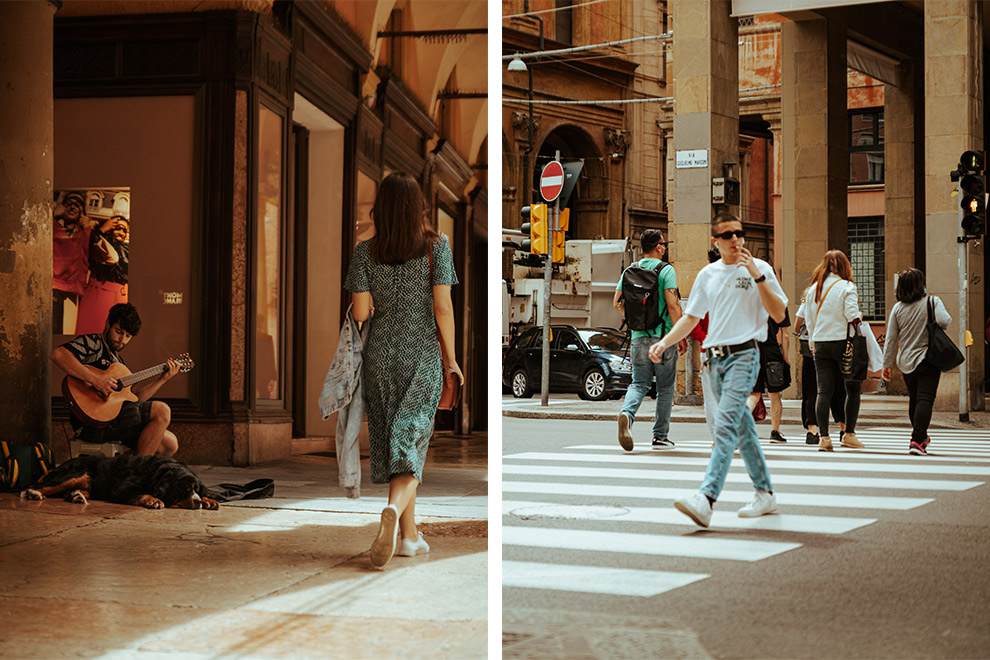 Photos: Marco Testi/Unsplash
Photos: Marco Testi/Unsplash
Medieval Maze
In Bologna, you don't just go from one attraction to another; you stroll around and take in your surroundings. That's more than enough. The cultural hub of the city is the Piazza Nettuno, where the Saborsa Library stands and Neptune, surrounded by his mermaids, towers above the fountain. From here, you walk onto the main street, Piazza Maggiore, where you'll stroll under arcades and the sound of music from crackling records echoes through the windows of cafes.
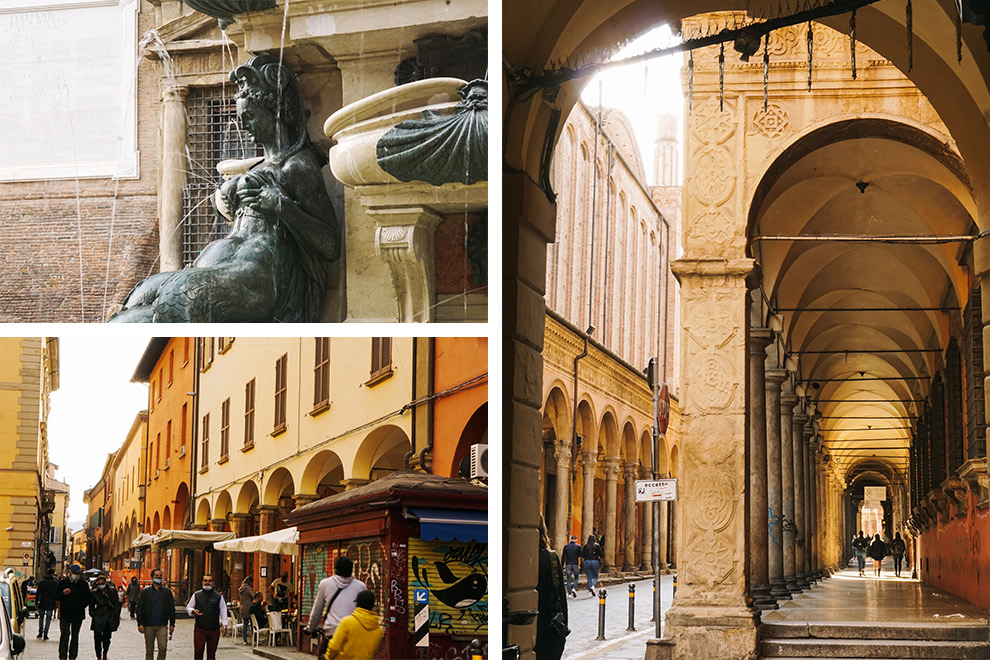 Photos: Zoë de Goede
Photos: Zoë de Goede
From here, you'll arrive at the enormous square where the residents of Bologna have been gathering since the Middle Ages: the Piazza Maggiore. Here stands the famous Basilica di San Petrinio with the world's largest sundial, and you can admire the City Art Collection in the town hall. Watch out for the Palazzo dell’Archiginnasio here too, the oldest university in the Western Hemisphere, founded in 1088.
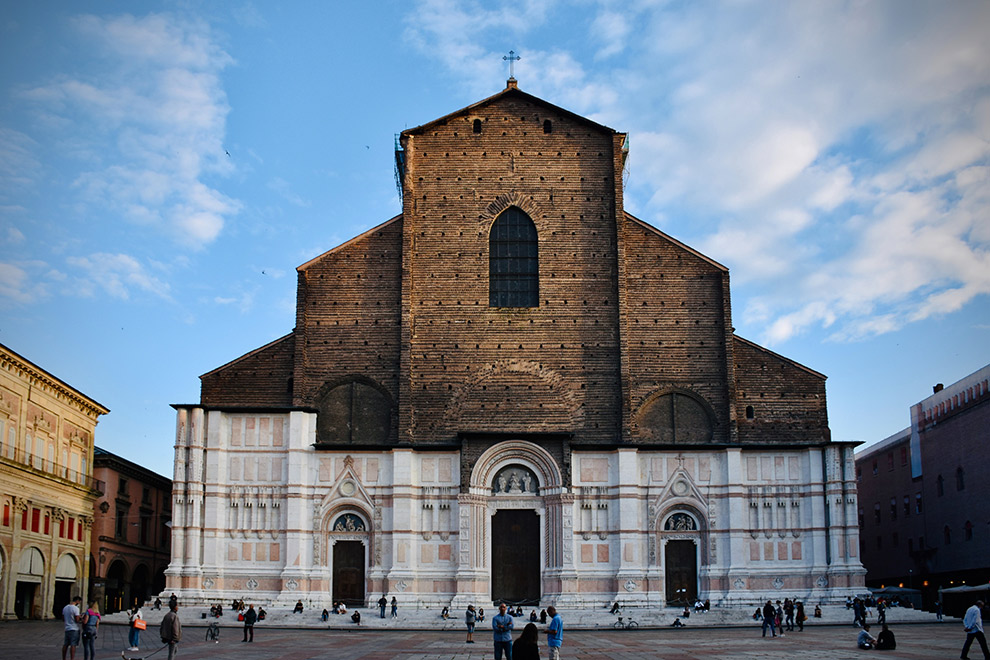
Photo: Arno Senoner/Unsplash
Walk towards Via Rizolli to the two enormous medieval towers, Asinelli and Garisenda, which are visible from every point in the city and tower meters above the roofs of the city's eighteen other massive structures. From here, head to the third square, Piazza Stefano, dominated by a church. South of the squares, you'll find quieter streets, where, with a bit of luck, you'll be able to admire the mummified relic of St. Catherine on a golden throne in the Della Santa church.
For a different streetscape dominated by graffiti and coffee shops, head to the former Jewish ghetto. Here, students and hipsters have their regular haunts, and street art, like climbing plants, dominates every surface of the walls. You can hitch a ride on a free two-hour bike tour to see the most extraordinary street art in the neighborhood.
Porticoes and High Views
The main feature of Bologna is its endless porticoes, which once provided shelter for horses and carts and now offer shelter to pedestrians fleeing from rain or intense sunlight. Supported by majestic columns, dating back to the Middle Ages, they span forty kilometers of Bologna's streets. Don't forget to look up here, as the most extraordinary artworks are hidden in the ceilings.
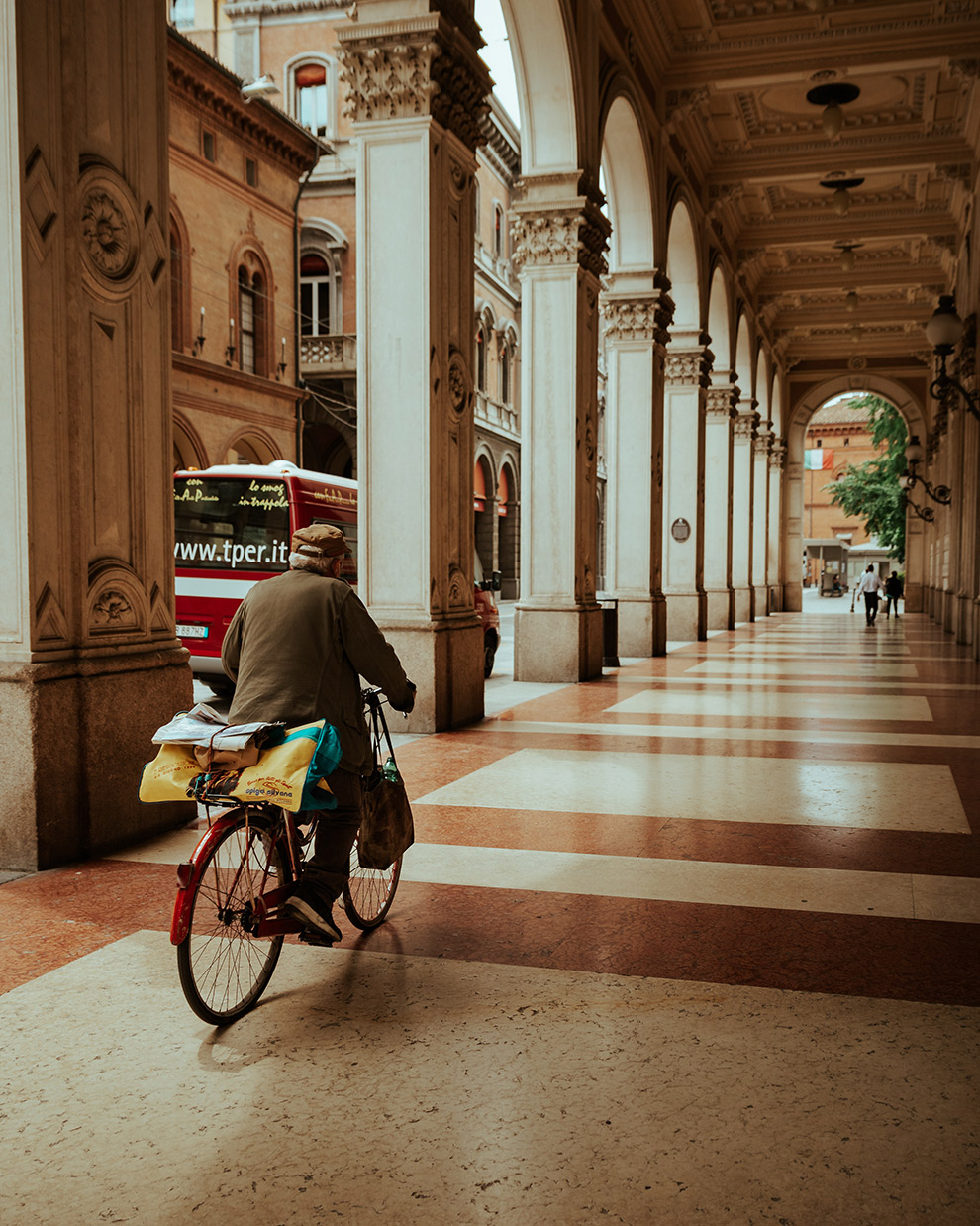 Photo: Marco Testi/Unsplash
Photo: Marco Testi/Unsplash
Bologna feels like a warm blanket. The orange and reddish-brown hues that adorn the facades of houses provide a rustic charm that no one can escape. The full palette of color tones is best admired from above, and there are plenty of opportunities to do so. The best place to do this is the Terrazza Panoramica della Basilica di San Petronio. You can also climb the 498 wooden steps of the 97-meter-high Asinelli Tower for a bird's-eye view of Piazza Maggiore.
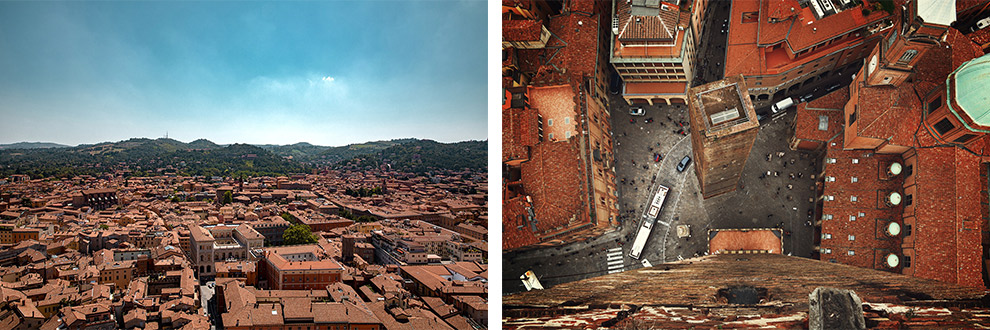 Left photo: Bianca Acker, Right photo: Bodgan Dada via Unsplash
Left photo: Bianca Acker, Right photo: Bodgan Dada via Unsplash
Licking Your Lips
The Emilia Romagna region, where Bologna is located, is known for its gastronomic specialties. Parmigiano-Reggiano cheese, Parma ham, balsamic vinegar, and Bolognese sauce were invented here. In Bologna, it's impossible to end up in a bad restaurant, but to see it all together, head to the Quadrilatero district, where there's a massive food market buzzing with friends enjoying lunch outdoors during the day, and the scent of fish and Bolognese sauce wafts through the walkways.
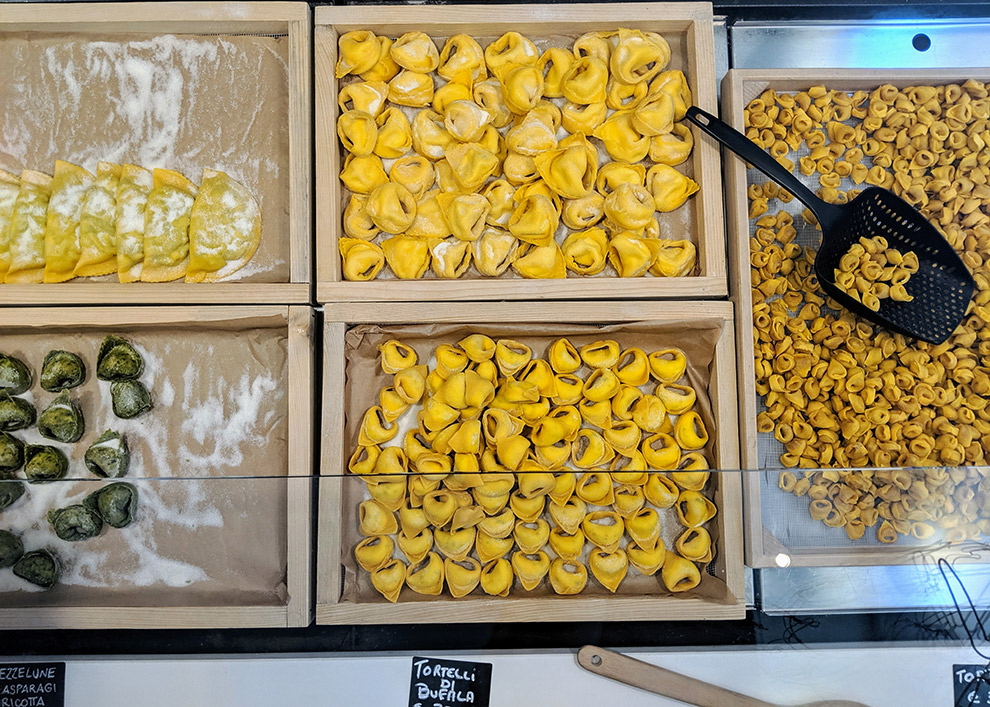 Photo: Nik Focht/Unsplash
Photo: Nik Focht/Unsplash
Traveling through Tuscany and craving the taste? Then read this blog, too: 'Siena: a Gothic open-air museum'!
Create your own blog
Easily add stories to your diary in our online editor or app
Add your images and choose your pages layouts
Share your journey in real time without the fuss!

